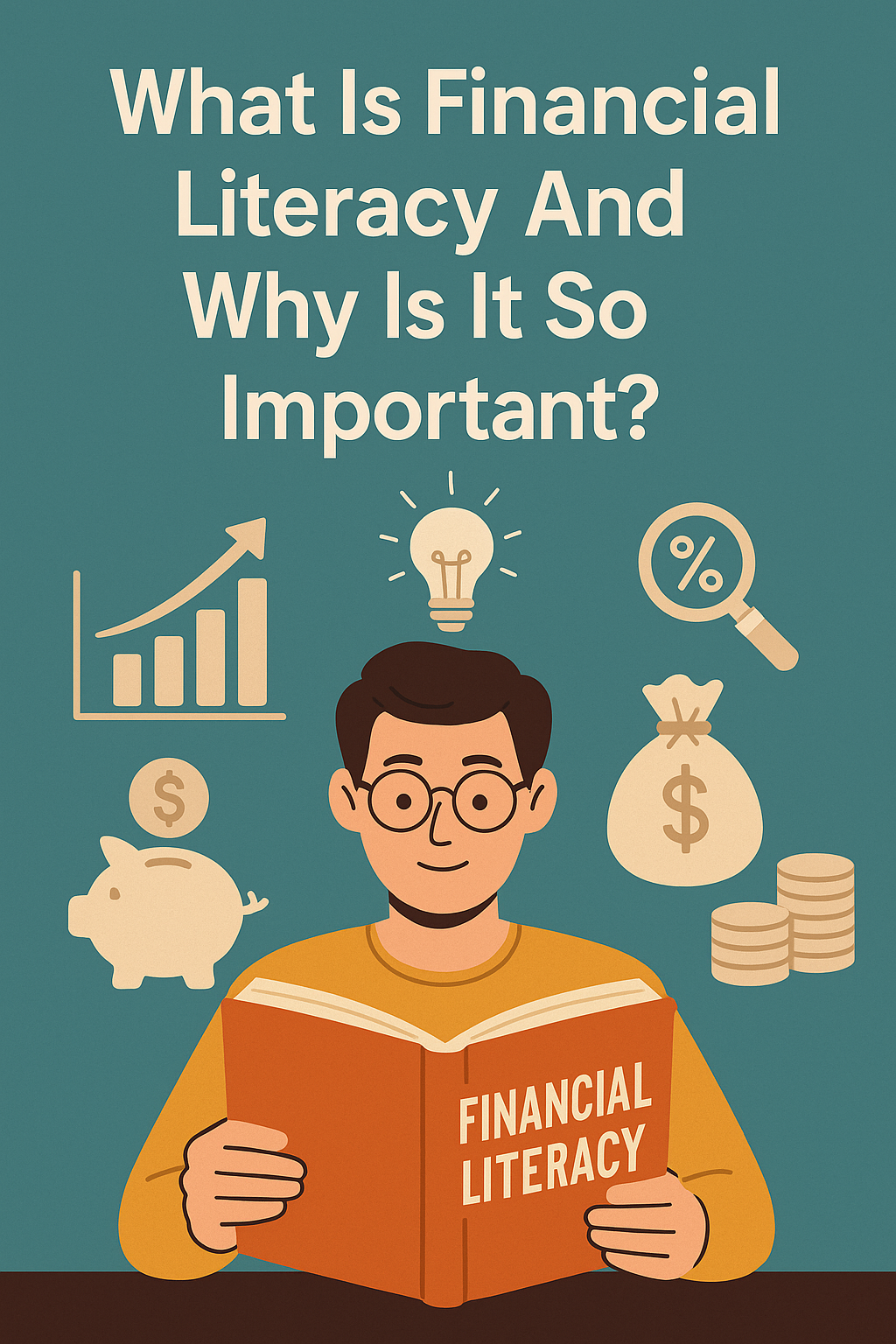In a world where financial decisions affect nearly every aspect of our lives, understanding how money works is more crucial than ever. From managing monthly expenses to making major life purchases or planning for retirement, your financial well-being depends on your knowledge and habits. This is where financial literacy comes in.
Understanding Financial Literacy
What Is Financial Literacy?
Financial literacy refers to the ability to understand and use various financial skills, including budgeting, saving, investing, and managing debt. It involves a basic understanding of how money works and the tools available to help you achieve financial stability.
Being financially literate means you can make smart choices with your money. Whether it’s deciding between renting or buying a home, understanding credit card interest rates, or planning for retirement, financial literacy empowers you to act confidently.
Core Components of Financial Literacy
- Budgeting – Knowing how to allocate income for expenses, savings, and investments.
- Saving – Setting aside money for emergencies, large purchases, or future goals.
- Investing – Understanding different investment vehicles and risk management.
- Debt Management – Knowing how to use credit responsibly and avoid high-interest traps.
- Financial Goal Setting – Creating short-, medium-, and long-term goals with clear plans.
Why Is Financial Literacy Important?
1. Helps You Make Better Financial Decisions
A financially literate person can evaluate financial options, avoid bad deals, and choose the best savings or investment options. For example, understanding how interest rates work helps you avoid high-cost debt and maximize returns on savings.
2. Reduces Financial Stress
Money problems are a leading cause of stress. Knowing how to manage your finances can give you peace of mind, knowing that you’re in control and have a plan for emergencies, retirement, and debt repayment.
3. Prevents Accumulation of Debt
People often fall into debt because they don’t understand how credit works. Financial literacy teaches you to borrow wisely, understand loan terms, and avoid payday loans or excessive credit card debt.
4. Encourages Saving and Investing
When you understand how compound interest works and how investments grow over time, you’re more likely to build a savings habit and plan for long-term goals like retirement or buying a home.
5. Empowers Financial Independence
Financial literacy allows individuals to support themselves without relying on others or government aid. It helps build confidence and independence at every stage of life.
Key Financial Literacy Skills Every Beginner Should Know
Budgeting Basics
Learn how to categorize expenses and monitor income vs. spending. Start with simple tools like:
- Pen and paper
- Excel or Google Sheets
- Free apps like Mint or EveryDollar
Understanding Credit
- Learn how credit scores are calculated
- Understand the impact of late payments
- Use credit cards wisely and avoid minimum-only payments
The Power of Compound Interest
Understand how money grows over time when invested properly. This is key for retirement planning and setting long-term goals.
Emergency Fund Planning
Have 3 to 6 months’ worth of expenses saved in a separate, easily accessible account. This protects you from unexpected setbacks like job loss or medical emergencies.
Recognizing Financial Scams
Be cautious with offers that sound “too good to be true.” Scammers prey on those with limited financial knowledge. Learn to spot red flags in emails, phone calls, and online offers.
Financial Literacy in Everyday Life
Choosing a Bank
Financial literacy helps you compare account fees, interest rates, and customer service. You’ll also learn to avoid overdraft fees and select the right bank for your needs.
Buying a Car or House
Being informed allows you to read loan terms carefully, calculate total interest, and understand insurance costs and taxes.
Planning for Retirement
Even if you’re young, financial literacy emphasizes the value of starting early. The sooner you invest in a retirement plan, the more you’ll benefit from compound growth.
Common Barriers to Financial Literacy
Lack of Access to Education
Many people were never taught about money in school or at home. It’s important to seek out reliable sources to educate yourself.
Misinformation Online
Not all financial advice online is trustworthy. Stick to reputable sources such as government websites, certified financial advisors, or recognized financial authors.
Fear and Shame
Some people avoid financial discussions because of past mistakes or lack of confidence. It’s important to know that everyone starts somewhere—and it’s never too late to learn.
How to Improve Your Financial Literacy
1. Read Books and Blogs
Start with beginner-friendly books like:
- “Rich Dad Poor Dad” by Robert Kiyosaki
- “The Total Money Makeover” by Dave Ramsey
- “Your Money or Your Life” by Vicki Robin
2. Listen to Financial Podcasts
Podcasts are a great way to absorb information while commuting or doing chores. Try:
- The Dave Ramsey Show
- Planet Money
- HerMoney
3. Take Online Courses
Websites like Coursera, Udemy, and Khan Academy offer free or low-cost courses on personal finance.
4. Follow Experts on Social Media
Many financial educators post tips and explain concepts in a simple, engaging way. Just be sure to verify their credentials.
5. Practice What You Learn
Start budgeting. Open a savings account. Track your spending. The best way to retain knowledge is to apply it in your daily life.
Final Thoughts: Financial Literacy Is the Foundation of a Better Future
Financial literacy isn’t about being rich or perfect—it’s about making informed decisions that improve your life. The more you learn, the better prepared you’ll be to face challenges, seize opportunities, and live with confidence.
No matter your starting point, every step you take toward understanding your money is a step toward freedom. Start today, and your future self will thank you.
